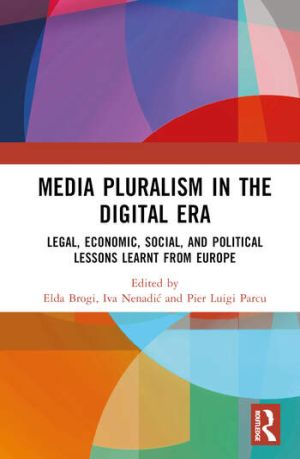
Bringing together scholars, journalists, and researchers from 27 European countries, this book provides a comparative and longitudinal analysis of the evolvement of conditions and standards relevant for sustainable, free, and plural media and journalism in Europe in the last 10 years.
Approaching the challenging and ever-changing concept of media pluralism from various complementary and sometimes conflicting angles, combining legal, economic, social, and political perspectives, chapters provide a holistic account of the concept of media pluralism, a key condition for a well-functioning democracy. This book draws on data from the Media Pluralism Monitor project, a scientific tool designed and implemented on a regular basis to document the health of media ecosystems, to provide insights into central dimensions of media systems across the EU and candidate countries. These include:
Offering a comprehensive overview of key areas of EU media policy, causes and solutions for the media economic struggle, and innovative examples of business models for journalism in the digital age, this book is recommended reading for advanced students and researchers of media policy and regulation, as well as policymakers.